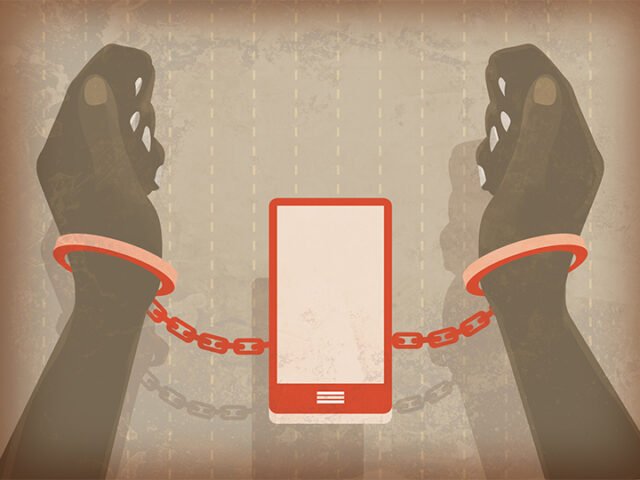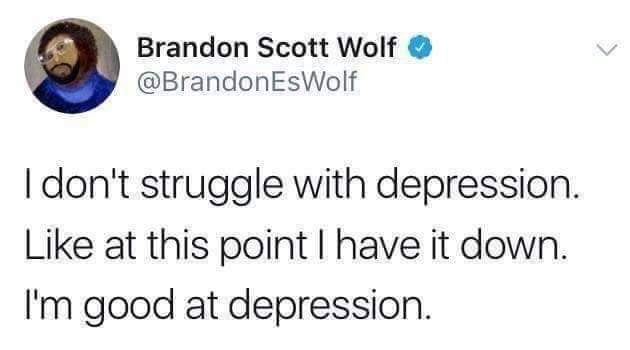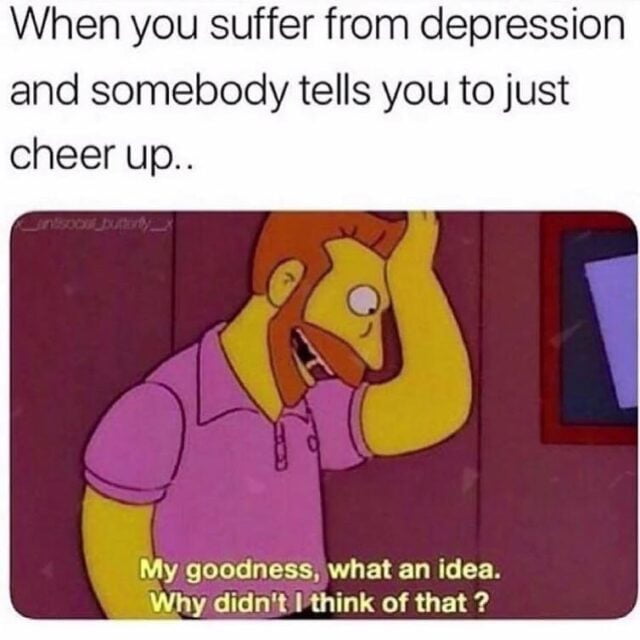Social media has no bounds when it comes to romanticising mental health. GenZ blurred the lines between destigmatizing and romanticising mental health issues. They have turned it into a trend. They forget that it’s not the same thing and they shouldn’t be intermingled.
Let’s Not Romanticise And Find Out What Depression Actually Is!
The issue with the romanticization of mental illness is that it completely warps how we see certain illnesses in a way that is seen as “attractive” or even sought after. It also delegitimizes the struggles of the people who are diagnosed with depression and other sorts of mental illnesses.

The indications of depression can be mood swings, fatigue, slow-moving/talking, difficulty sleeping, pessimism, and many more. The symptoms of depression are now trivialized and many people are self-diagnosing themselves because they may have felt one of them. For example, one might feel sad for a while and assume they have depression because of how the symptoms are portrayed on social media.
Self-diagnosing: A New Social Media Trend
Self-diagnosing mental health has become a social media trend that is extremely popular among the youth. The problem with self-diagnosis is that it can lead to teens deteriorating their conditions.
I believe that the trend of self-diagnosis rose because of the casual nature in which depression and other mental health issues are talked about. Depression is just not being “sad” and anxiety is just not about being “tensed”, there is more to it which we conveniently choose to ignore.

Depression is talked about too nonchalantly. Words related to mental health are just thrown around like confetti. Depression is showcased as something that is just a mere discussion topic to sound woke and “cool” and not considered a legitimate and severe mental illness; that might require psychological and/or medical attention.
One could easily find a post that romanticizes depression beautifully and attractively and thereby negates the vitality of understanding the reality of the illness and ends up sharing it without thinking about the consequences.

Read More: Millennial Mistakes That Gen Z Plan To Avoid
That post might affect different people in different ways. People who are depressed may get neglected, instead, the person who shares such a post might end up getting the help and support he doesn’t need.
Some teenagers are known to fake it and “self-diagnose” themselves just to get attention which is primarily caused by sympathy for them among their classmates or friends.
Depression or mental illness is not pretty as social media sometimes portrays it to be. Depression has different forms, some may have trouble eating or sleeping.
Depression can look like having consistent aches in your body without a physical cause. It’s high time we realize that depression is real and serious and it deserves to be talked about with extensive research and knowledge.

Gen Z has normalized romanticizing depression because their source of knowledge is bound to social media. The type of posts made about depression on platforms like Twitter or Instagram can lead to people trying to relate to having a mental illness that is far more complex than what they see on social media.
Since it’s shown in the positive limelight it becomes another problem when people purposely try to attach themselves to such symptoms which they are not suffering from. This can have detrimental effects on the people who suffer from depression. With more and more people faking it, it will dilute the real experiences of depression and glorify the symptoms on a large scale.
How To Not Romanticise But Destigmatise?
Instead of normalizing and romanticizing mental health issues we should extensively research and expand our perspective, before any judgment. Social media influencers should put out useful information and resources about mental health.
We can successfully destigmatize depression without going too far and romanticizing it. Accepting depression and talking about it with professionals can help one understand the symptoms.
Because in the end, depression is a serious mental illness, not a cool thing for everyone to relate to. We can be more accepting of depression and help people who are truly going through it.
Image Source: Google Images
Sources: Munich Re, The Economist, eclincher
Connect with the blogger: @GhoshSohinee
This post is tagged under: normalising and romanticising mental health issues, Social media influencers, depression, destigmatize depression, symptoms, knowledge, mental illness, mood swings, fatigue, slow-moving/talking, difficulty sleeping, pessimism, Self-diagnosing mental health, psychological and/or medical attention, youth, anxiety, GenZ, trend, Millennials
Other Recommendations:
Depression Is A Pandemic; Let’s Use Lessons From COVID-19 To Find Treatments


































